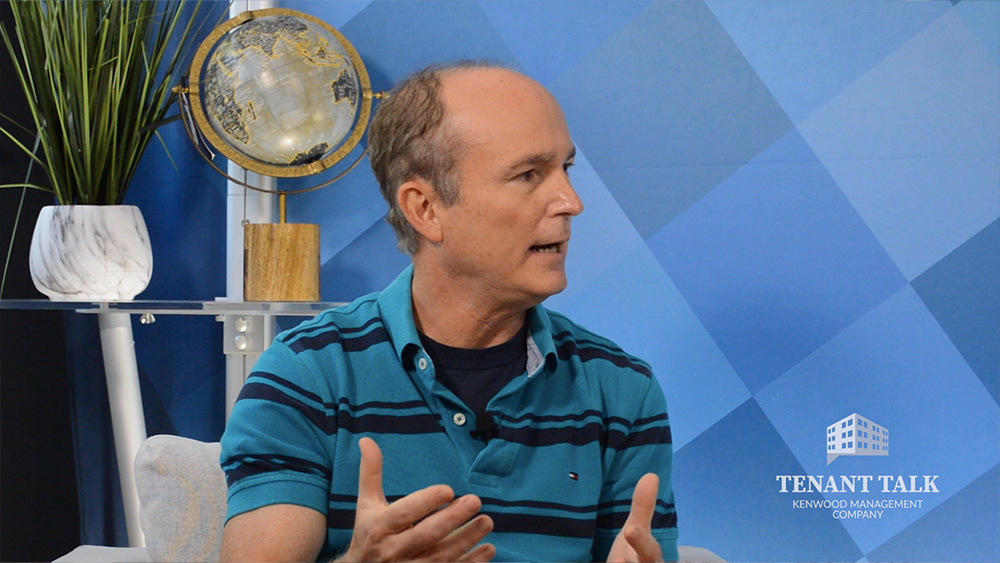Tenant Resources
Leveraging the Tenant-Landlord Relationship for Your Business

Growing and operating a small business means juggling numerous moving parts. At some point, your business may grow large enough that you can no longer operate out of your house. If you choose to lease a space, whether it’s a storefront or an office, you’ll be establishing a relationship with a valuable resource: Your landlord.
Tenant Talk is a five-part series designed as a resource for small business owners to gain valuable insights that can help their business grow. In episode 2 of Tenant Talk, Kenwood Management Principal Bill Singer and Illumine8 CEO and Founder Christina May dive into how business owners can leverage the tenant-landlord relationship to further enhance their business growth. You can watch the full series on YouTube or listen to the podcast on Buzzsprout. Here’s a quick recap.
So, your business is ready to move into its next chapter. You’re ready to move into your first leased space. Before you sign the lease, there are a lot of factors to consider: location, size of the space, and rental rate. But another crucial factor to consider in your evaluation process is the landlord. Communication is a two-way street. A valuable landlord is accessible and easy to contact. For example, all of Kenwood’s tenants have the personal cell phone information of a Kenwood Principal.
Communication can be difficult with your landlord, especially when they aren’t local to the property. However difficult as it may be, establishing that communication level can produce numerous benefits. Sharing your business and describing your long-term plans are ideal opening conversation points.
For example, one of Kenwood’s tenants, a carpet installer, was anticipating a carpet padding shortage and wanted to pre-order a bulk amount. After reaching out to Kenwood Management, we were able to identify additional space for them to store the extra padding. When Illumine8 moved into its space, they quickly established a dialogue with their landlord. That relationship later enabled Illumine8 to purchase the building where they were operating their business.
Sharing your business goals can also help during the lease negotiation process. Even if your business is out of the ordinary, be prepared to back it up with a business plan that gives the landlord assurance that you can execute on your goals as well produce sufficient income to pay your rent and other expenses. “I don’t think that coming to your landlord with a crazy idea is a bad thing, but be prepared to back it up with why you think the idea will work,” Bill recommends.
Even if your business experiences hard times financially, or operationally, such as a major accident occurring within your space, it’s still incredibly important to quickly and proactively communicate with your landlord. For example, you may anticipate a customer payment being delayed. Or, you may accidentally set off a small explosion in your space (and, yes, that happened with a chemical company renting space from us). Letting your landlord know as early as possible of any issues is important to establish a long-term productive relationship with your landlord.
If you’re looking for more valuable insights, the entire season of Tenant Talk is available on our YouTube channel! Or, listen to the podcast on Buzzsprout. In episode 3, we discuss six relationships small businesses should outsource.
